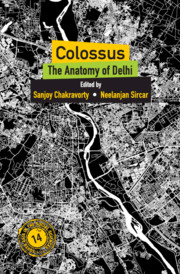12 - Politicians and Netas: The Politics of Grievance and Political Intermediation
Published online by Cambridge University Press: 31 July 2021
Summary
Introduction
In 1985, the late Prime Minister Rajiv Gandhi claimed, “Of every rupee spent by the government, only 17 paise reached the intended beneficiary.” Indeed, even the most basic services and infrastructure, from water to garbage collection to roads, are routinely under-provided to Indian citizens. There are myriad reasons for this poor delivery of goods from the state—among other things, a sheer lack of funds, weak bureaucratic capacity to deliver benefits, and outright corruption.
But whatever may be the reasons for the poor performance of the Indian state, the inability of the state to deliver on its promises obliges citizens to use “informal routes” to extract what they have been promised from the state. In a hot, arid climate such as that of Delhi, potable water is at a premium, and the taps often run dry in any number of Delhi's colonies. In such situations, citizens of the colony leverage their local contacts—who themselves typically have political and bureaucratic connections—to put pressure on the state to restore water provision. Of course, when water access is restored in the colony, it is typically taken away from another colony, one with “less connected” local contacts. When the state fails to meet expectations, citizens of urban India, such as those described in the previous paragraph, must pursue redressal of their “grievances” through such local contacts.
The local contacts used by citizens are “intermediaries,” although in common parlance they may be called dalals (middlemen), samaj sewaks (social workers), fixers, netas (leaders), brokers, influencers, or many other names. The name is not important. What is important is that these “informal” intermediaries fundamentally mediate access between the state and its citizens. Because intermediaries are so crucial to the last mile delivery of services, infrastructure, and benefits to citizens, they effectively choose the winners and losers in state provision. This naturally engenders inequality in state provision to citizens. Intermediaries may be endowed with different levels of skill and connections, or they simply be more attached and responsive to certain citizens, leaving those without regular access to high-quality intermediaries largely excluded from the largesse of the state.
- Type
- Chapter
- Information
- ColossusThe Anatomy of Delhi, pp. 311 - 334Publisher: Cambridge University PressPrint publication year: 2021

